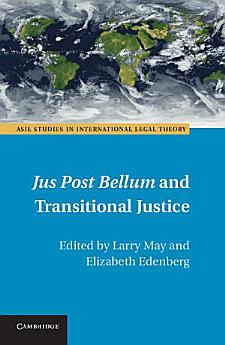Jus Post Bellum and Transitional Justice
Über dieses E-Book
Autoren-Profil
Larry May is W. Alton Jones Professor of Philosophy, Professor of Law and Professor of Political Science at Vanderbilt University. He is the author, most recently, of Crimes against Humanity: A Normative Account (2005), War Crimes and Just War (2007), Aggression and Crimes against Peace (2008), Genocide: A Normative Account (2010), Global Justice and Due Process (2011), After War Ends: A Philosophical Perspective (2012) and Limiting Leviathan: Hobbes on Law and International Affairs (2013). He is also the editor of International Criminal Law and Philosophy (2009, with Zachary Hoskins) and Morality, Jus Post Bellum, and International Law (2012, with Andrew Forcehimes).
Elizabeth Edenberg is currently working on her PhD in philosophy at Vanderbilt University. Her article, 'Unequal Consenters and Political Illegitimacy', co-authored with Marilyn Friedman, was published in The Journal of Political Philosophy.






